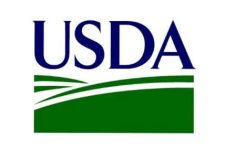(Washington, D.C., November 12, 2020) – Twenty-first century agriculture involves cutting-edge science, technology, business management – and you. Today, the U.S. Department of Agriculture (USDA) announces scholarships to help you build a career path in agriculture, food, natural resource sciences, and many more agriculture-related subjects.
The USDA/1890 National Scholars Program was established in 1992 in partnership between USDA and 19 historically black universities that were established under the Second Morrill Act of 1890. The program provides full tuition, fees, books, room and board, and a summer internship to students pursuing degrees in agriculture, food, natural resource sciences, or related academic disciplines. When the student has completed the academic and summer work requirements of the scholarship, USDA may convert the student to a permanent employee without further competition. The application deadline is January 31, 2021. Apply today.
The USDA 1994 Tribal Scholars Program was established in 2008 in partnership between USDA and 1994 institutions, tribally controlled colleges and universities with land-grant status. The program provides full tuition, fees, books, and a summer internship to students pursuing degrees in agriculture, food, natural resource sciences, or related academic disciplines. When the student has completed the academic and summer work requirements of the scholarship, USDA may convert the student to a permanent employee without further competition. The application deadline is January 31, 2021. Apply today.
USDA’s Office of Partnerships and Public Engagement collaborates with 1890 historically black land-grant colleges and universities, 1994 tribal land-grant colleges and universities, and Hispanic-serving institutions to promote equitable participation in USDA programs, services, and resources for rural, tribal, and historically underserved students and the communities they serve. These partnerships also support education and career opportunities for students and faculty and help develop a strong pipeline of talent for USDA.
For more information on these scholars programs, visit www.usda.gov/partnerships/higher-education-initiatives.





